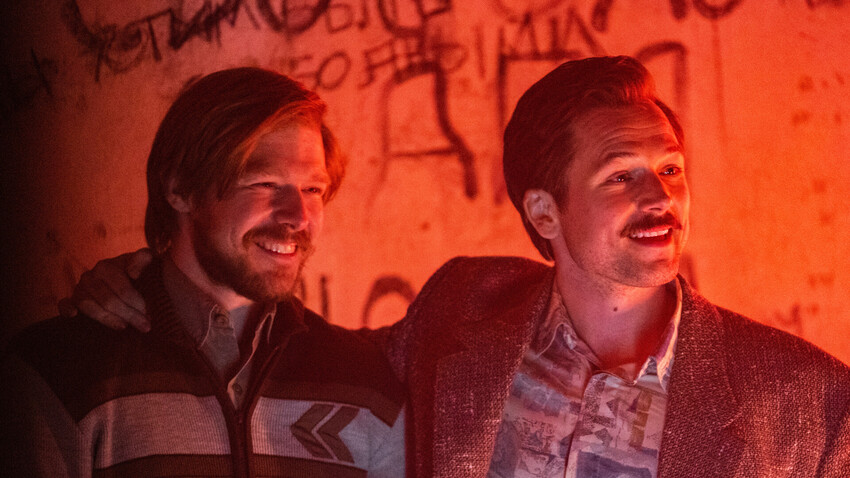
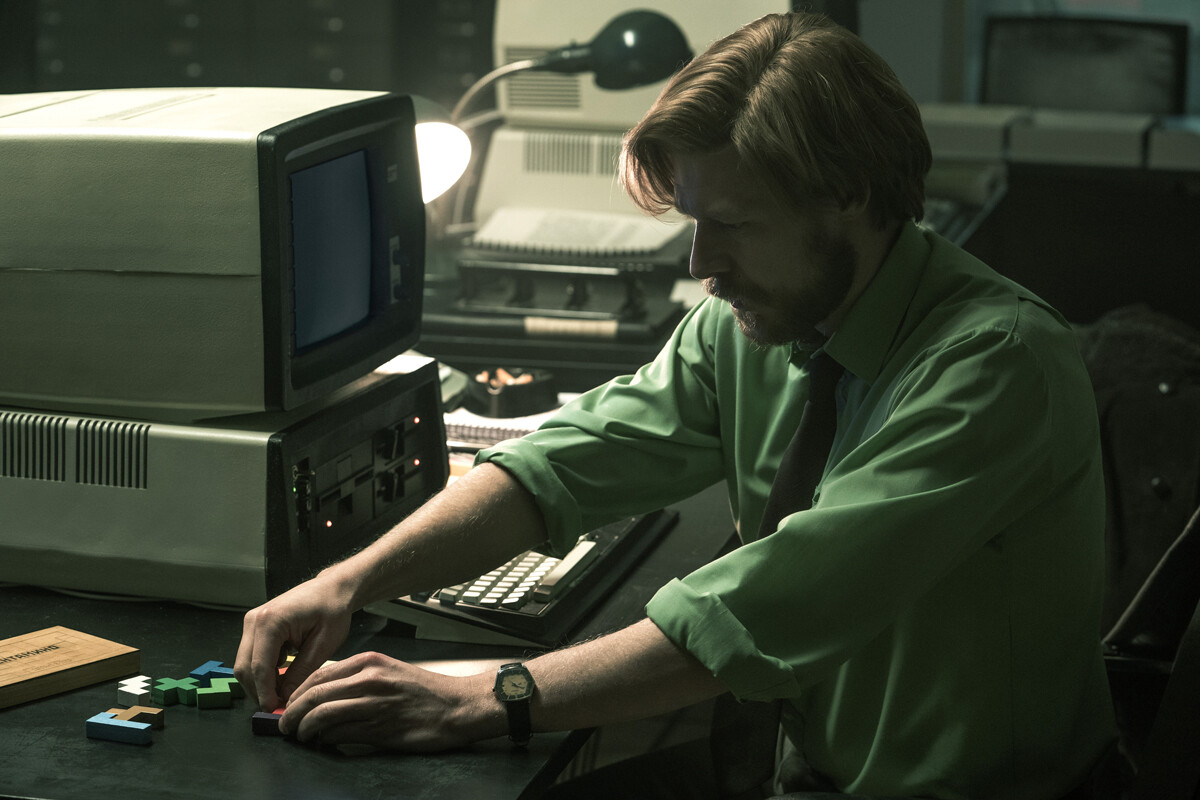
Soviet programmer Alexey Pajitnov, played in the movie by Russian actor Nikita Efremov, was the originator of one of the most popular video games in history. Pajitnov created ‘Tetris’ in 1984 on an Elektronika-60 computer when he was working at the computer center of the USSR Academy of Sciences. The movie, of course, claims he secretly developed the game at night, but, in actual fact, Pajitnov partly came to the idea of ‘Tetris’ in the course of his work - during the day.
While working on problems of artificial intelligence and speech recognition, he used puzzles, including pentominoes. But five tiles proved too complicated for the computing power of the time, so he had to resort to a tetromino format and ‘Tetris’ was created as a result. Among other things, the music used in the movie - an eight-beat version of the Russian folk song ‘Korobeiniki’ - also suggests the Russian link in the history of ‘Tetris’.
But, take Pajitnov’s friend, the psychologist Vladimir Pokhilko, for example: He doesn’t feature in the movie at all, although, according to some accounts, he played an important role in creating and promoting ‘Tetris’. The writers were much less interested in that side of the story than in the ensuing international battle for the game as it gained popularity around the world.
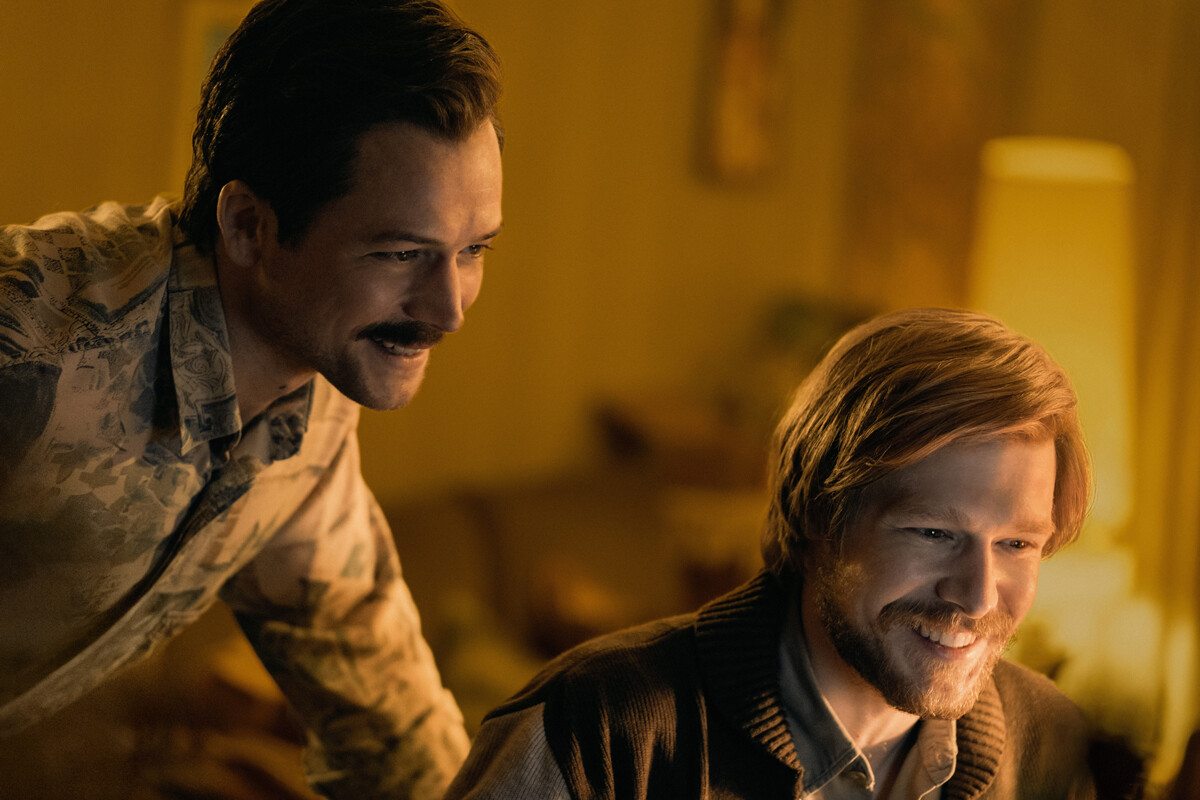
The movie, directed by Jon S. Baird, begins in 1988 when Henk Rogers, a Dutch entrepreneur who has lived in the U.S. for a long time and eventually settles in Tokyo with his wife and children, sees a foreign version of ‘Tetris’ at an electronics show in Las Vegas and finds out that he can buy the rights to the game for Japan.
There, the Nintendo video game company is on the lookout for new ideas. But, the story of the rights turns out to be far more complicated and this is what Baird’s movie is about.
And in the movie, as in real life, the securing of a license for ‘Tetris’ covering all possible types of use in different countries, which was a process spanning several years, involved not just Rogers, who gambled all his savings and property on the game, but also British media tycoon Robert Maxwell and, of course, the Soviet state corporation ‘ELORG’ (or ‘Elektronorgtekhnika’), the principal holder of the licensing rights to the game.
Pajitnov himself received no royalties from it in the Soviet period.

The main action in ‘Tetris’ unfolds in Moscow between the years 1988 and 1989 - although the sequences were actually shot in Scotland. And, if the other cities in this geographically saturated movie come across as reasonably bright and sunny locations, the Soviet capital naturally abounds in every shade of gray. And that applies not just to the dormitory suburbs with their modular high-rises, where Pajitnov in his obligatory ‘ushanka’ earflap-hat lives, but also the central streets of the capital, where single-story shacks with signs saying “Books”, “Fish” and “Groceries” are designed to illustrate the drastic shortage of goods. The same message is conveyed by a woman in a denim jacket, who shouts that her family is starving and who is saved from dying in the streets by the educated Pajitnov, who works for a government agency, something which is supposed to imply a good “food ration”. The Translink Hotel where Henk Rogers checks in is not up to much when it comes to standards of service, either - the woman at the reception hands over his room keys with disdain and a taxi from the hotel can only be obtained in exchange for ‘Volga’ brand cigarettes. In actual fact, of course, Moscow in the age of perestroika, which had already begun in the USSR at that point, was far from being in such a state of dire decline. Admittedly, towards the second half of ‘Tetris’ the movie actually remembers this and shows a clandestine party where young people dream of freedom, Coca-Cola and Levi jeans and dance to Europe’s ‘The Final Countdown’.
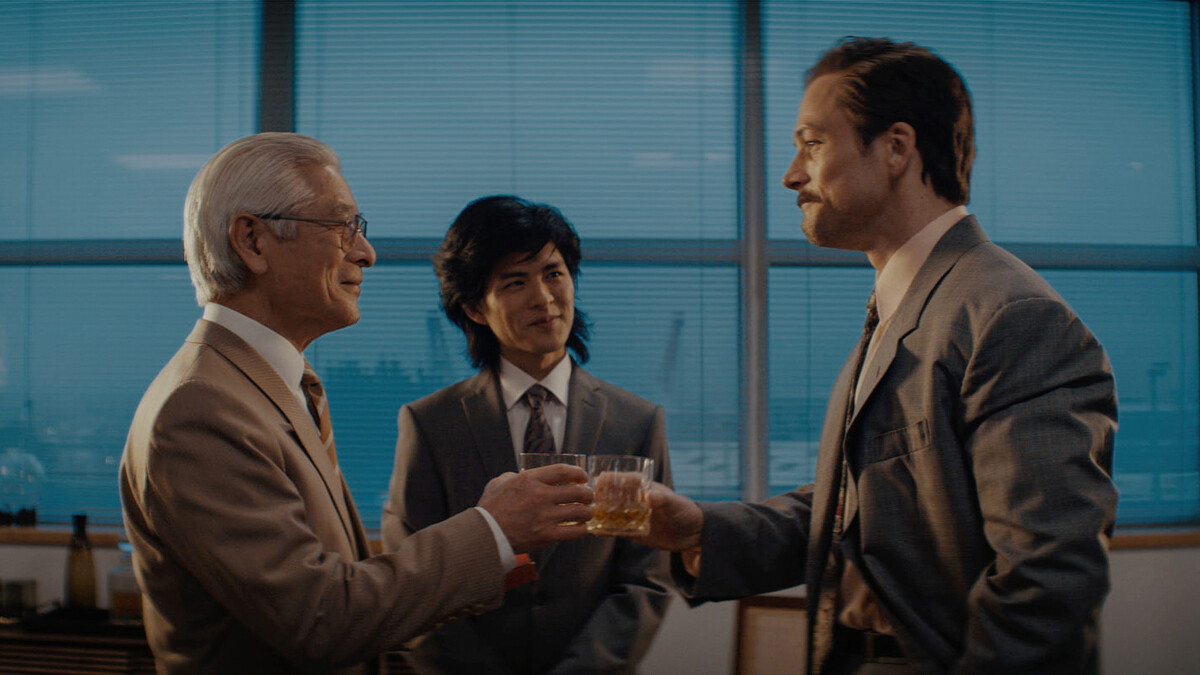
As a foreigner, Rogers is of course the object of close surveillance in the Land of the Soviets. This was perfectly possible in the perestroika era - a reappraisal of the KGB’s activities only took place in 1991. But, in the movie, state security operatives become very nearly key figures who stand behind all the machinations in the ‘Tetris’ deal. Perestroika-era Moscow simply teems with them and their “black marias”. There aren’t many people in the streets of the capital apart from them - and the starving woman, that is. Even in the Translink Hotel, Rogers meets a translator (played by Sofya Lebedeva from ‘McMafia’ and ‘Vikings: Valhalla’ fame), who, naturally, is also, one way or another, involved with the KGB. The chief villain in ‘Tetris’ is played by Russian actor Igor Grabuzov, who turns the malevolent chief of Soviet state security into something akin to the ‘Joker’.
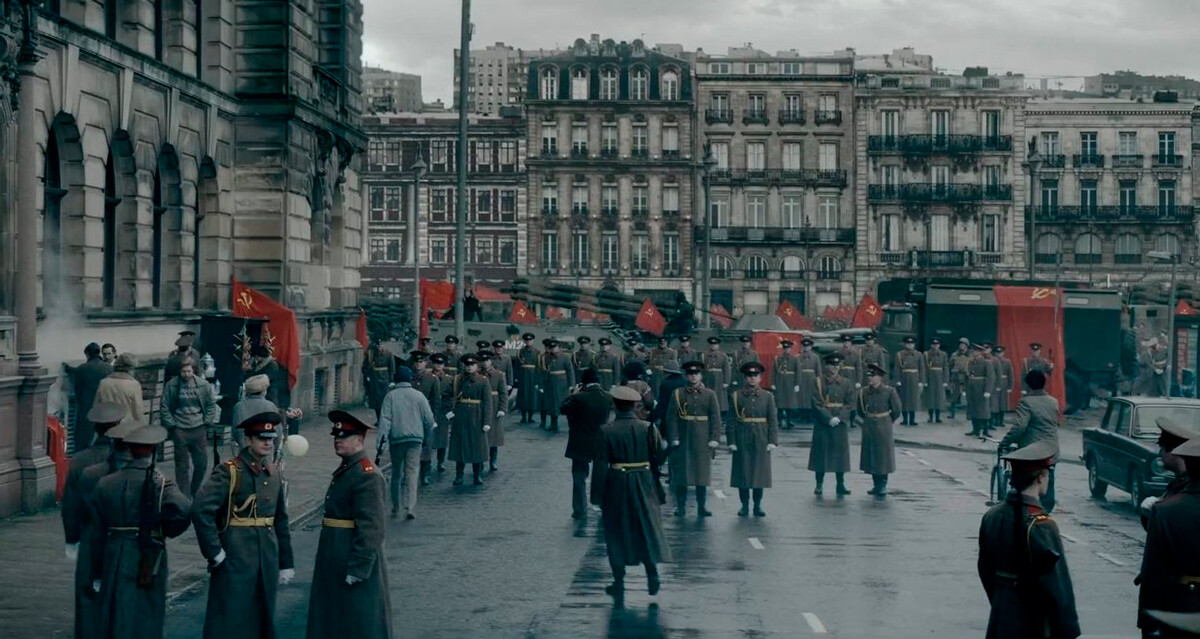
When he appears in the movie, media tycoon Robert Maxwell immediately starts boasting about his acquaintanceship with General Secretary Mikhail Gorbachev, which is initially taken as nothing but a joke, however Gorbachev really did know Maxwell and tried to help him in the race for ‘Tetris’. Such an interesting fact could not but be reflected in the movie and so, towards the culmination of the movie - on the Red Square itself, in a parade dominated by a portrait of Lenin - the General Secretary of the CPSU Central Committee does, in fact, appear. He is played in broken Russian by British actor Matthew Marsh. But, the character he plays doesn’t become any sort of important argument in favor of a decision on ‘Tetris’, but a link for the finale of the movie, which desperately attempts to set the game in a political context and to demonstrate that the race to acquire Pajitnov’s brainchild played no small role in the collapse of the entire Soviet Union.
Dear readers,
Our website and social media accounts are under threat of being restricted or banned, due to the current circumstances. So, to keep up with our latest content, simply do the following:
If using any of Russia Beyond's content, partly or in full, always provide an active hyperlink to the original material.
Subscribe
to our newsletter!
Get the week's best stories straight to your inbox